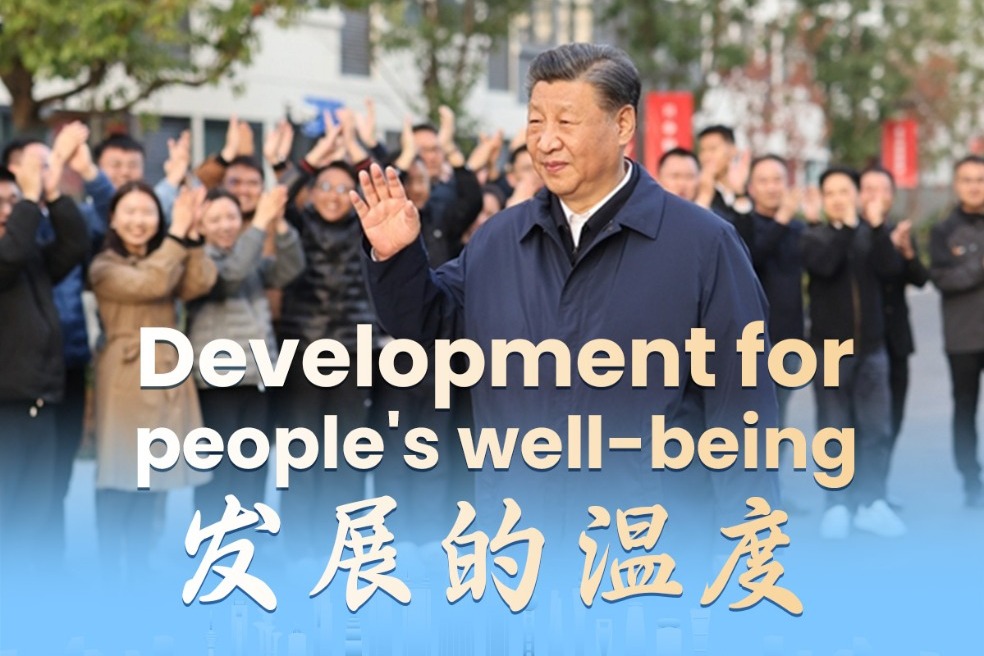US needs to demonstrate constructive mindset to build on progress of previous trade talks: China Daily editorial

The candid and constructive telephone talks between President Xi Jinping and US President Donald Trump?over the past months provided a strategic road map for the stable development of bilateral ties.
Under the guidance of such heads-of-state diplomacy, economic and trade discussions in Geneva, London, Stockholm and Madrid have yielded constructive understandings, helping ease China-US trade and economic tensions. These trade talks demonstrated that progress can be made when both sides commit to equal-footed dialogue conducted with mutual respect.
So, as Chinese and US trade teams start their fifth round of negotiations on Friday in Kuala Lumpur, Malaysia, there is a hope that their coming dialogue can help address the recent spike in bilateral trade tensions sparked by the US administration's continued coercive measures.
Chinese Vice-Premier He Lifeng is scheduled to have talks with US Treasury Secretary Scott?Bessent?and US Trade Representative Jamieson Greer in Malaysia from Friday to Monday. This round of consultation not only offers an opportunity to stabilize trade between the world's two largest economies, it is also expected to set the stage for a higher-level engagement in the future.
China has always approached bilateral negotiations with sincerity and a constructive mindset, and has consistently upheld principled dialogue and a cooperative atmosphere. It is vital that both countries continue to engage in open communication, addressing each other's concerns with sincerity and a willingness to find common ground.
This approach not only benefits both sides, but also contributes to global stability and prosperity.
However, while China is ready and willing to engage in negotiations in good faith, it will not do so at the expense of its core interests. The US has initiated a slew of discriminatory actions against China, ramping them up since the talks in Madrid in mid-September.
Unlike China's export control measures, which do not target specific countries, the US implements country-specific classifications, placing China under irrational export controls.
These US measures have seriously harmed the legitimate and lawful rights and interests of Chinese companies, severely disrupted the international economic and trade order, and gravely undermined the security and stability of global industry and supply chains.
China's export controls on rare earths are legitimate and intended to refine its export control system. Amid global instability, these measures will safeguard world peace and fulfill the country's nonproliferation obligations. China notified relevant parties beforehand, seeking dialogue to ensure global supply chain stability. It is not a ban. Compliant applications will be granted permits.
Despite this, the United States positions itself as the aggrieved party. The US administration has even threatened to impose an additional 100 percent tariff on China starting Nov 1, thereby reigniting fears of further escalation of its trade war against China.
The US' reluctance to recognize China's moves as legitimate and justified is troubling. The US approach of continually escalating tensions not only harms bilateral trade relations but also poses risks to global economic stability.
China's stance on tariffs and trade conflicts remains consistent: It is prepared to sincerely engage in dialogue to identify confidence-building measures to address concerns if the US is willing to do the same.
While competition is inevitable and cooperation is not without its challenges, the US should adopt fair trade practices, reduce trade barriers and create a stable economic environment that supports innovation and growth by adopting a constructive mindset that seeks to find ways to bridge bilateral trade differences. This includes addressing issues related to intellectual property rights, market access and supply chain resilience.
By prioritizing constructive engagement and recognizing the interdependence of their economies, the US can work with China to mitigate friction, avoid misjudgment and expand the common ground for cooperation.
Ultimately, the path forward requires a commitment to dialogue, respect for each other's core interests, a due sense of their global responsibilities, and a shared vision for a peaceful and prosperous world.
By drawing upon the lessons of history and embracing the opportunities of the present, China and the US can work together to keep their economic relationship on the right track, so as to avoid it becoming a damaging who-blinks-first game.
































